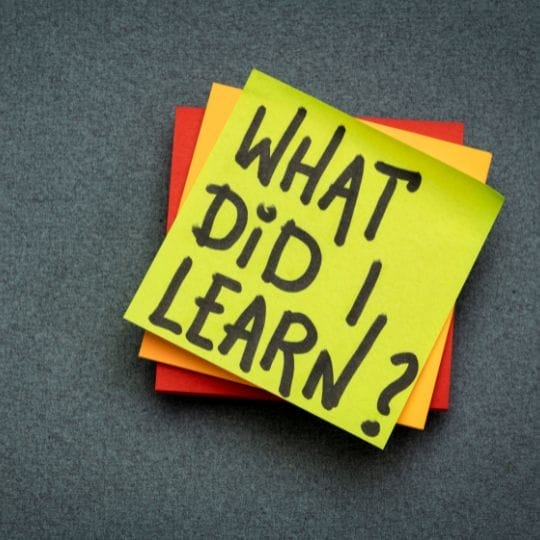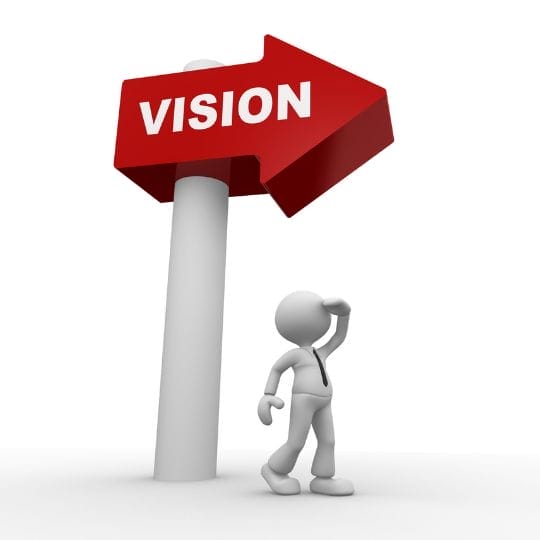
If you’re attending the HCANZA conference for health and wellness coaches in August – or any other conference – how can you make sure that you get the most out of your spending? Today I’ll share some tips and tricks to help you maximise your return on investment at conferences so you aren’t just getting information, you are also implementing what you learn.
If you’re attending a conference like the HCANZA conference, there is a lot going on over the few days and it can be both immersive and overwhelming.
I feel it’s really important to identify what you want to get out of the conference in advance.
Perhaps your goal is about learning specific things or being across cutting-edge industry updates. In either case, there might be certain presentations you’re particularly interested in, specific course providers you want to talk to, or people you want to meet. Look at the program and work those things out in advance so you have clear goals around learning.
What if your goal is more around networking? Dig a little deeper and consider what specifically would you get from that networking. Perhaps you are thinking about building a community. Perhaps it’s about finding a collaborative partner to deliver services with. Or maybe it’s about finding others you can refer clients to if they are not within your niche or scope.
If you’re introverted, your goal might be to talk to a set number of people over the course of the conference, rather than be stuck in a corner only talking to people you know.
These are some of the reasons why you might attend a conference of any sort and some of the goals you might like to think about. Right now, I invite you to reflect on what you want to get out of that conference and write down a few goals.
I don’t know about you, but when I attend a conference, I get so caught up in the energy and interactions that I find myself running on adrenaline and floating around the room with excitement.
Or you might find yourself immersed in the learning, or even overwhelmed with sensory overload.
This is why reflection is so important during the conference, so you can ground yourself and pull back into the value of the conference for you personally.
This period of reflection is so valuable for identifying key learnings along the way and how you might follow up, use or implement those learnings.

For example, if you attend a presentation that you love, reflect on that session immediately afterwards and use the conference notepad to outline a few key insights or learnings, how you will apply them, and when you will do that (schedule them in).
Similarly, if you have met a person that you’d like to reconnect with, consider the reason for reconnecting so you have a clear agenda, and then book the time with them during the conference.
The goal is to squeeze as much as you can out of your time there and maximise the opportunities that present – to make it worth your while!
It’s easy to avoid doing the things that seemed exciting at the moment – but following up with your contacts and following through with your tasks are two important parts of realising the return on your conference investment.
Following up with people can be the easier bit – especially if you’ve already identified the agenda for your meeting.
Following through with tasks can be harder to do – sometimes they seem unimportant or not as urgent as other things and they get pushed to the back.
For example, let’s say you identified a great training course that would help you build your skills in a particular area or some further reading on a topic – but you feel too busy right now. I recommend you enquire about the course or schedule the further reading anyway – because that at least gets the ball rolling.
Scheduling those non-urgent activities is an essential part of following through and continuing to grow professionally. Being accountable to yourself is an important skill that builds confidence, self-belief and efficacy.
Separate to following up and following through is the bigger-picture reflection that I like to do. This is where the magic of personal and professional growth often comes from, and it helps you stress test your vision to see if it is still current and in the right direction.
I like to reflect on what I learned overall, what it means to me or my business, and how I will tangibly implement those insights. The more specific you are the better – and scheduling any next actions ensures they get done.
For example, at a recent conference, I learned about some key trends in my niche sector. I have scheduled time to reflect on these, how they impact my business, and what sorts of actions I need to take or messaging I need to develop to capitalise on these trends.

Your reflections might be different to this e.g. discovering a new area of science that you’d like to learn about and how that might impact your clients.
The point is that you do the reflection at the big picture level so you can align and refine your vision.
Conferences offer a great opportunity to connect, build community and learn. But as we all know, information can have a profound impact on your business and life – but only if you implement it!
If you want to maximise your spending on the conference, I covered a few ways that you can milk all you can out of attending so that you achieve personal and professional growth.
The key points of today’s episode were around being intentional – making plans and goals, grounding yourself via reflection, following through and reviewing your vision.
Understanding who you are and what you need will allow your business to thrive! If you’re truly ready to break old habits and get out of the rut I encourage you to check out the Habitology membership.
Learn more here:
© 2024 Melanie White